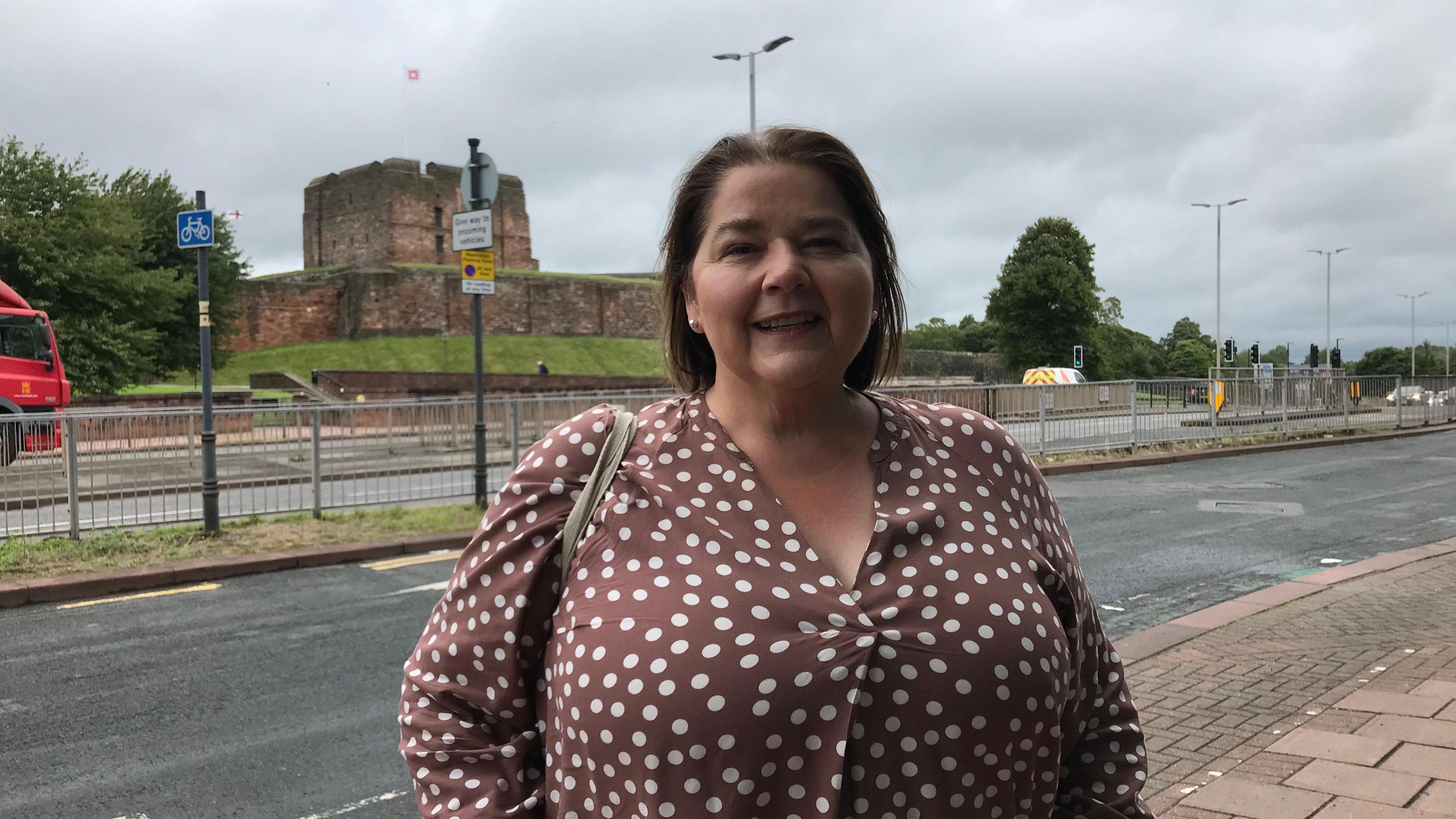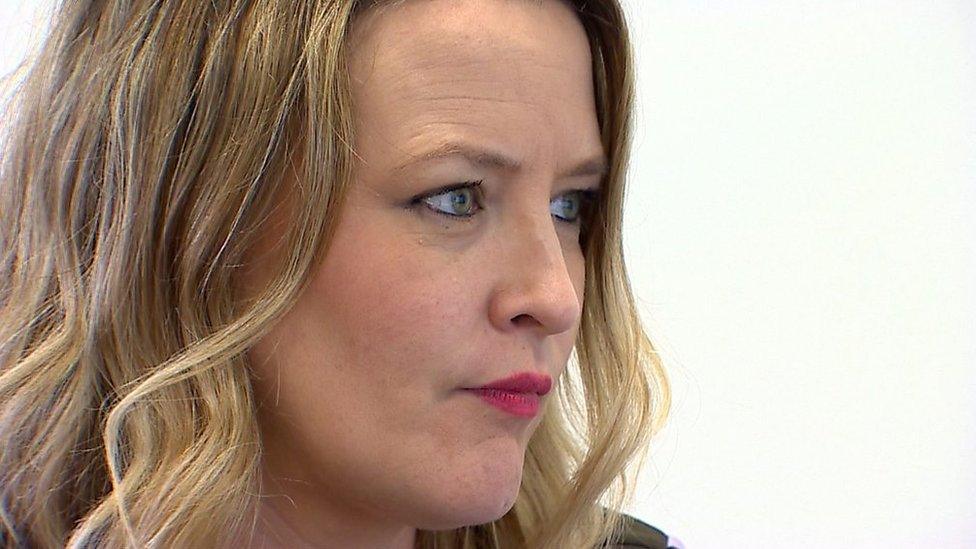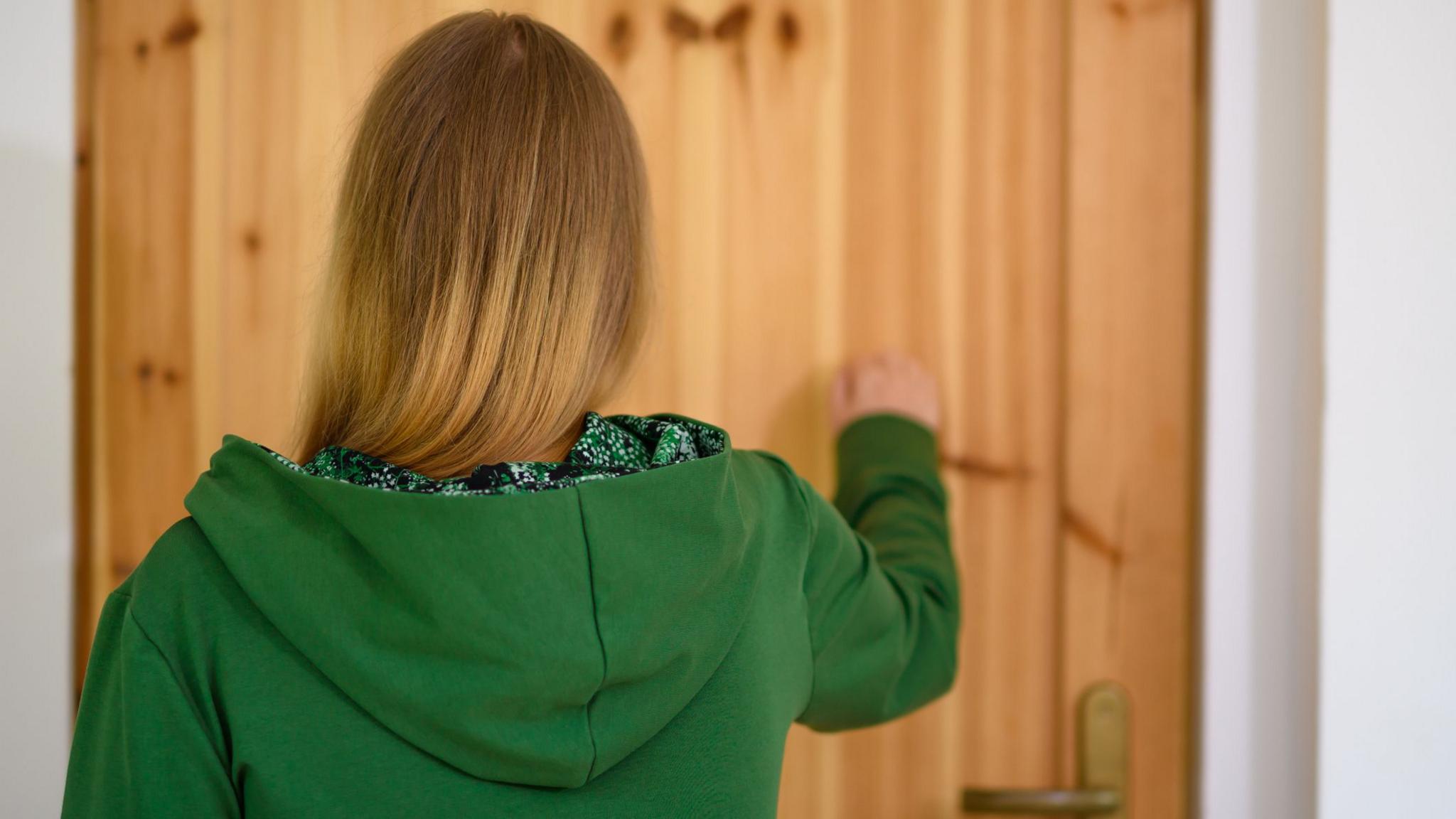Women in politics juggling family life and the job

Carlisle MP Julie Minns said caring for her elderly relatives and doing irregular hours was a challenge
- Published
Women working in politics have spoken of the challenges of juggling work with their family life and caring duties.
Cumbria's constituencies are among the furthest away from London, adding to the demands on MPs who have caring responsibilities.
Julie Minns, MP for Carlisle and Lizzi Collinge, who represents Morecambe and Lunesdale, have spoken to BBC Radio Cumbria for a series looking at issues that affect women in politics.
They said balancing the demands of the job while caring for their families was challenging, but having diversity in politics was "fundamental".
Mrs Collinge's constituency straddles the border between Cumbria and Lancashire, where she lives with her husband and two children.
She said: "Travelling and being away from your family can be quite difficult for the kids and to be honest, I'm so busy in Westminster that it's easy to partition off, but you get the occasional pangs of missing your family."
'Diversity is fundamental'
Mrs Collinge said her casework often hits home, with recent examples including helping a homeless constituent and being involved with a debate around baby loss.
"This hits very close to me having lost a couple of pregnancies," she said.
However, she said diversity in Parliament was fundamental.
"I think if you only have one sort of person in Parliament then you don't get the action that's needed for everyone in the country," she said.
Ms Minns is an unpaid carer for her 90-year-old mother and her 99-year-old aunt and said she "hasn't caught her breath" since being elected in July.
'Societal expectation'
Splitting her week between her work in London and in the constituency, as well as the irregular hours of the job, means Ms Minns is left with little time to do all the things she needs to do for them, such as chores, shopping and admin.
"It's always a juggle," she said.
She added that although caring for her mother naturally fell on her as an only child, there was still an expectation for women to take on more of the unpaid caring responsibilities.
She said: "I think there is still a slight societal or generational expectation that women are the primary carers - all of the evidence shows that is definitely the case when it comes to childcare and housework."
Follow BBC Cumbria on X, external, Facebook, external, Nextdoor and Instagram, external. Send your story ideas to northeastandcumbria@bbc.co.uk.
- Published9 July 2023

- Published5 June 2024
